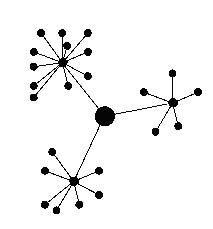ISSA Proceedings 2014 ~ On The Benefits Of Applying Argumentation Theory To Research On The Simultaneous Interpretation Of Political Speeches
Abstract: Even though interpreting is to a great extent about the interlinguistic reproduction of arguments, argumentation theory is almost completely overlooked by interpreting studies, which partly explains the frequent production of pragmatically inappropriate interpreted texts. Against the theoretical gap, the paper puts forward a descriptive argumentation approach to political speeches with a view to their simultaneous interpretation, in the attempt to make the case for a systematic contribution of argumentation studies to interpretation theory and training.
Keywords: argumentative equivalence, simultaneous interpreting, source texts (STs), strategic manoeuvring.
1. Introduction
The omnipresence of argumentation in everyday verbal communication is the hinge of argumentation studies (van Eemeren et al., 1996, pp. 1-2) and the main reason for their flourishing, from the classical period to a renewed spate of interest last century. What is probably less evident and certainly less studied is the fact that the socio-professional needs of the globalised world repeatedly demand that argumentation be reproduced in another language to cater for interlinguistic communication needs. In this respect, the present paper analyses how argumentation is and should be reproduced in interlinguistic settings requiring the interpreting service.
Argumentation is “the dominant mode of discourse in many interpreted situations” (Marzocchi, 1997, p. 182) and interpretation consequently implies a continuous argumentative interaction, thereby requiring at least an intuitive knowledge of the appropriate contextual use of arguments on the part of interpreters (Marzocchi, 1997, p. 184). Notably, when the predominant focus of a communicative situation is on the discursive attempt to resolve a difference of opinion, the quality of the interpreter’s performance is assessed on the basis of his/her ability to convey the argumentative purpose of the original text, “possibly to the detriment of other kinds of equivalence or of received ideas concerning fidelity” (Marzocchi, 1997, p. 183). This particularly holds true for political argumentation, in which the systematic and subtle implementation of strategic manoeuvring (Zarefsky, 2009, p. 115) to overcome a conflict between different lines of action demands specific equivalence standards not only concerning the content of the message but also its persuasive and ethotic dimensions, which are less important in other communicative events such as specialist conferences.
However, despite the significant development of argumentation studies in the last few decades and the argumentative character of several interpreted situations, the extent to which knowledge of argumentation theory by the interpreter could benefit the overall comprehension of the original or source text and favour the production of the respective interpreted text has yet to be explored (Crevatin in Marzocchi, 1998, Preface, p. xiv). More precisely, the growing interest in argumentation has gone mostly unnoticed in interpreting scholarly settings, in spite of its multidisciplinary and interdisciplinary nature. This is partly due to the fact that interpreting research is a fairly young and largely unexplored discipline (Garzone & Viezzi, 2002, p. 2), and the contribution of argumentation makes up one of most overlooked albeit potentially fruitful domains.
The paper outlines the preliminary findings of a broader PhD project focusing on the empirical examination of recurrent argument schemes in a multilingual corpus of political speeches. By harnessing the hermeneutical and contrastive functions of argumentation analysis (Marzocchi, 1998, p. 8), the study uncovers substantial differences in speakers’ adoption of argument schemes, thereby making the case for enhanced language-specific, argumentation-driven interpreter preparation. In this respect, the present paper is primarily concerned with the applicability of argumentation concepts and methods to interpreter training. Read more
ISSA Proceedings 2014 ~ The Voices Of Justice; Argumentative Polyphony And Strategic Manoeuvring In Judgement Motivations: An Example From The Italian Constitutional Court
Abstract: Combining the ScaPoLine (Nølke, Fløttum, & Norén, 2004; Nølke, 2009, 2011, 2013) with the (extended) pragma-dialectical approach (van Eemeren & Grootendorst 1984; 2004; van Eemeren 2010), I suggest a reconstruction of judgement motivations as critical discussions between a plurality of voices conveyed even in one and the same sentence. In particular, I present some illustrative examples of polyphonic strategic manoeuvring from a landmark judgment of the Italian Constitutional Court: n. 440/1995.
Keywords: Critical discussion, Italian Constitutional Court, legal discourse, polyphony, Pragma-dialectics, ScaPoLine, strategic manoeuvring.
1. Introduction
When reading legal texts such as judgement motivations, one encounters a plurality of voices carrying different views on the issue at stake. This happens not only – quite unsurprisingly – at a textual level, but also at the micro-level of the utterance (cf. Nølke, 2009, p. 12). With Nølke (2009, p. 12), I focus here on “polyphonie en langue, conçue comme le produit des éléments de la langue susceptibles de favoriser une certaine lecture polyphonique de la parole.” I maintain that the use of such polyphony has an argumentative significance and that this can lead to reconstruct such apparently monological texts as fully fledged critical discussions permeated by the striving for rhetoric efficiency known in Pragma-dialectics as strategic manoeuvring (van Eemeren, 2010). In other words, I suggest focusing on argumentative polyphony in judicial motivations and looking at it from the angle of rhetoric efficiency, since, as van Eemeren (2010, p. 153) pointedly writes, it is the “ample room left for strategic maneuvering [that] is, in fact, the basis of the legal profession.”
The matters addressed in the present contribution are of methodological order and can be broken down into two questions:
* Can an integration of the pragma-dialectical and a polyphonic approach provide useful insights into argumentation analysis?
* Does polyphony account for strategic manoeuvring in judgement motivations?
The fundamental suggestion put forward is therefore the integration of two theoretical pillars: the (extended) Pragma-dialectics on the one hand (see among others van Eemeren & Grootendorst, 2004; 1992; 1984; van Eemeren, 2010), and the linguistic polyphonic approach known under the acronym ScaPoLine – which stands for Théorie SCAndinave de la POlyphonie LINguistique – on the other hand (see among others Nølke, Fløttum & Norén, 2004; Nølke, 2006; Nølke, 2013).
2. Theoretical framework
2.1 The first pillar: Extended Pragma-dialectics
I will not dwell largely upon the first pillar here, since it is the specialty of the Institution hosting the conference from which the present volume results. Only two aspects are to be briefly recalled to the reader’s mind: the ideal abstract model of a critical discussion, in which argumentation and standpoint are staged, and the rhetorical component present in argumentation. Read more
Holland vs The Netherlands
Ireland and the European Economic and Monetary Union
 “A theory of capitalism that recognises the pluralist, multi-dimensional and internally conflicted nature of social systems restores politics to the central place it deserves, in contrast to efficiency theories in which politics is about no more than the instrumental problem of defining and implementing the most efficient institutions for the essentially technocratic task of coordination” (Wolfgang Streeck, 2010)
“A theory of capitalism that recognises the pluralist, multi-dimensional and internally conflicted nature of social systems restores politics to the central place it deserves, in contrast to efficiency theories in which politics is about no more than the instrumental problem of defining and implementing the most efficient institutions for the essentially technocratic task of coordination” (Wolfgang Streeck, 2010)
The financial crisis has called into question the capacity of national sovereign democratic states to reconcile the distributional tensions that emerge from capitalist market expansion. This problem has become particularly acute for countries of the Eurozone (De Grauwe, 2010, 2011). They cannot devalue their currencies and must adjust their economies through IMF-ECB induced structural reforms in labour, wage and fiscal policy. The problem of coordinating wage, fiscal and monetary policy in the interest of employment and economic performance, or capital accumulation, is not new. It was central to the construction of different variants of national incomes policies in European political economies during the neo-corporatist Keynesian era.
But how did domestic political actors respond to the adjustment constraints of globalised variants of capitalism during the neoliberal era, and what has been the trajectory of institutional change in European industrial relations and welfare regimes? This question guides the theoretical dimension of my PhD The Rise and Fall of Irish Social Partnership – The Political Economy of Institutional Change in European Varieties of Capitalism (2012) which is grounded on an argument that the politics of democratic capitalist change can be traced to the disorganisation and flexibilisation of institutions that enable labour to constrain capital. The decline in trade union strength and an increase in business power underpins the public policy paradigm shift from Keynesianism to neoliberalism across Europe. The role of the state in conditioning this pattern, and the diverse trajectory of change it invoked, is central to the study of comparative political economy. National labour market regulations have been flexibilised and the problem of employment resolved either through supply side reforms aimed at activation or low wage employment (Hall, 2011).
From Big Brother to Radical Decentralization
 In the past centuries governing has become more centralized, out of necessity and because it made the most sense. The state and its organizations, national as well as international, will not disappear as sources of power and government. However, they can no longer govern alone.
In the past centuries governing has become more centralized, out of necessity and because it made the most sense. The state and its organizations, national as well as international, will not disappear as sources of power and government. However, they can no longer govern alone.
Many things will have to be radically re-organized. Districts organize their own waste collection and every home is energy supplier. The adage for the next decennium will be: Radical Decentralization.
Sun and waste
Governed from Beijing and in its well-known particular brand of go getting, China is creating giant fields full of solar panels in the Gobi desert. The European Union has found the spirit after the accession of 10 new countries in 2004 and is getting ready to accept the rest of former Yugoslavia (Croatia, Bosnia and Herzegovina, Serbia, Montenegro, Kosovo and Macedonia) after the accession of Slovenia. The role of centralized government is far from played out. And yet a different trend marks the second decennium of this century: Radical decentralization, meaning organizing general interest issues on a micro scale. The size of the scale varies, and ends with the individual. Currently, individualism is not a popular term and brings to mind images of self-enriching bankers. That is one side of the coin. Thanks to the high level of education of for instance Western societies and ongoing technological advancements, we are more than ever capable of shaping our own lives, which creates great opportunities for the individual as well as for society at large. It does require changes from bureaucrats and administrators. In the next decade they will either have to adjust or make room for new ones.
Farid Tabarki at the 2008 Berlin Conference “A Soul For Europe
Farid Tabarki at Berliner Konferenz 2008 from A Soul for Europe on Vimeo.
(Berliner Konferenz 2008 from A Soul for Europe on Vimeo).
Farid Tabarki in the Rozenberg Quarterly: From Big Brother to Radical Decentralization


